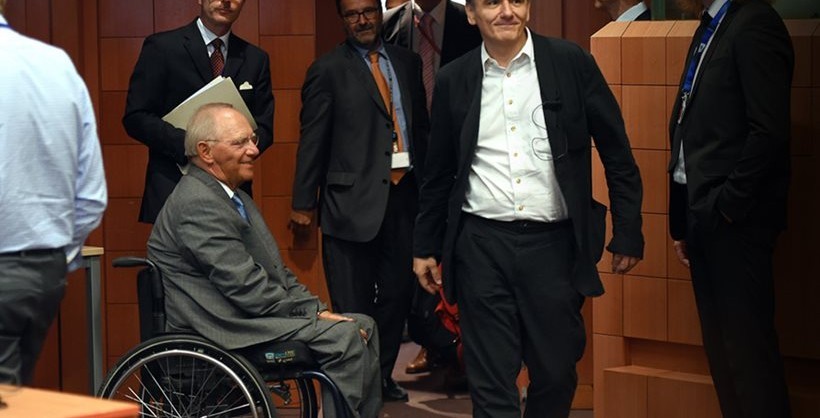According to Deutsche Welle, the German daily Süddeutsche Zeitung has described the heated debate between the Eurozone finance ministers over the austerity measures that will have to be imposed on Greece, saying that Berlin is pressing for a ten-year extension of the 3,5% primary surplus target that was originally set for 2018.
“While the German government is pushing to extend the primary surplus originally agreed for 2018 by ten years, France and Italy see this as a danger to the political and economic stability of the country and are trying to lead the discussion towards debt relief instead, ” writes SZ’s Brussels correspondent. “Because Germany is prepared to discuss debt relief after 2018, it is calling for the adoption of binding, long-term financial targets. At this time, the Europeans have agreed on a primary surplus of 3.5%. Germany wants to impose this target for another ten years, which the Fund, like a significant portion of the Eurogroup, considers unrealistic. Among EU circles, it is commonly said that it makes no sense economically, because it will lead to the strangulation of growth.”
In its article, SZ also refers to the contingency mechanism, the so-called “cutter,” in the event that Greece does not implement the terms of the program, a measure that could be implemented to give the Fund greater certainty.
In an article entitled “Greece, the Euro colony,” the German daily Tageszeitung reports that,”Almost every Greek family is feeling the pinch. Income has been reduced by 35%. Nonetheless, the Eurozone finance ministers pretend nothing is going on. They want to reduce wages even further, violating all the international treaties that protect unions’ rights. The finance ministers are transforming Greece into a colony where only checks matter, not laws. “
































